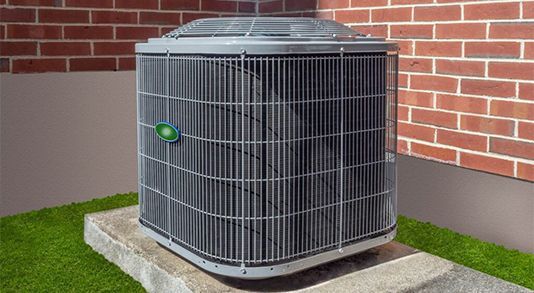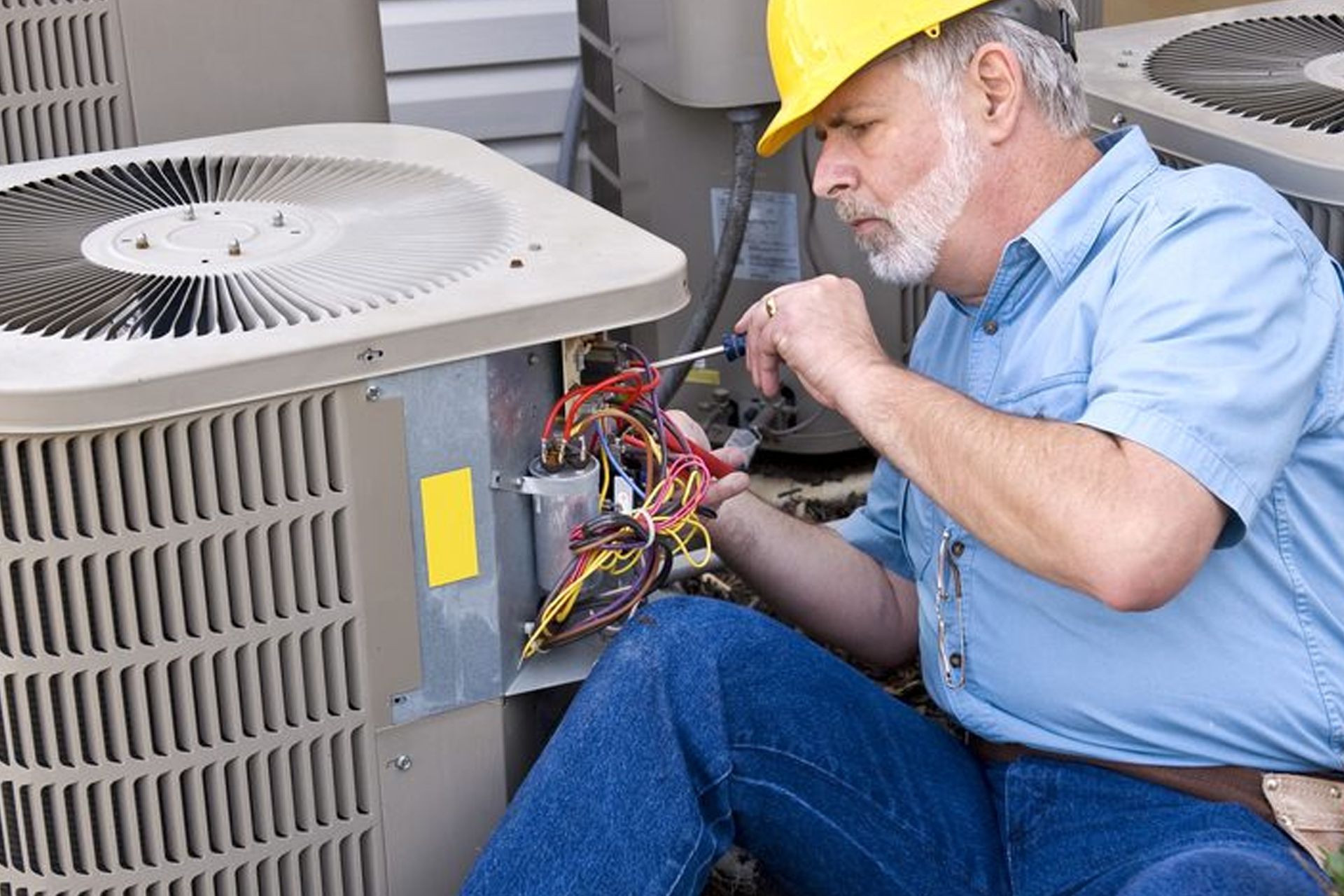What Is Central Air and How Does It Work?
In the scorching summers of Smiths Station, AL, and Columbus, GA, reliable air conditioning is essential for maintaining comfort and escaping the heat. Central air conditioning is a popular and effective cooling solution for regional homes. This comprehensive guide will explore the fundamentals of central air conditioning, its components, and how it works to keep your home cool and comfortable all summer.
Understanding Central Air Conditioning
Central air conditioning is a comprehensive cooling system that utilizes a network of ducts to distribute cooled air throughout the home. Unlike portable or window air conditioners that cool individual rooms, central air conditioning provides consistent and even cooling to all living spaces. This makes it ideal for homes in Smiths Station, AL, and Columbus, GA, where cooling needs extend to multiple rooms.
The key components of a central air conditioning system include:
- Thermostat: The thermostat acts as the control center of the system, allowing homeowners to set and regulate the desired indoor temperature.
- Outdoor Unit: The outdoor unit houses the condenser coil, fan, and compressor. It is responsible for expelling heat from the refrigerant and releasing it into the outdoor air.
- Indoor Unit: The indoor unit comprises the evaporator coil and the blower fan (air handler). It is responsible for cooling the air and circulating it throughout the home via the ductwork.
- Ductwork: The ductwork is a network of insulated pipes that distribute the cooled air from the indoor unit to different rooms in the house and return warm air to the unit for further cooling.
How Central Air Conditioning Works
Central air conditioning follows a cyclical process to cool the indoor air and maintain a comfortable temperature within the home. Let's break down the steps involved in how central air conditioning works:
- Thermostat Signals: When the indoor temperature rises above the set temperature on the thermostat, it sends a signal to the air conditioning system to start cooling.
- Air Circulation: The air handler fan pulls warm air from the rooms through the return ducts. This air passes through filters, which remove dust and debris, ensuring cleaner indoor air quality.
- Evaporator Coil: The warm air flows over the cold evaporator coil, where the refrigerant absorbs the heat from the air. As a result, the refrigerant evaporates from a liquid to a gas state.
- Cool Air Distribution: The blower fan pushes the cooled air through the ductwork, delivering it to each room in the house. The cooled air lowers the temperature and provides relief from the intense heat.
- Refrigerant Compression: The refrigerant gas, now carrying the absorbed heat, moves to the outdoor unit's compressor. The compressor compresses the gas, increasing its temperature and pressure.
- Heat Dissipation: As the refrigerant passes through the condenser coil in the outdoor unit, the fan blows outdoor air across the coil, dissipating the heat absorbed from the indoor air. The refrigerant returns to its liquid state.
- Refrigerant Return: The cooled refrigerant flows back to the indoor unit through copper tubing, ready to repeat the cooling cycle. The process continues until the desired temperature is reached.
Energy Efficiency and Cost Savings
Central air conditioning systems are designed with energy efficiency in mind, providing homeowners with significant cost savings in the long run. Here's how central air conditioning promotes energy efficiency:
- High SEER Ratings: SEER (Seasonal Energy Efficiency Ratio) measures the cooling efficiency of an air conditioning system. Central air conditioners with higher SEER ratings consume less energy to provide the same cooling output, resulting in lower utility bills.
- Variable-Speed Technology: Many modern central air conditioning systems feature variable-speed technology. This allows the unit to adjust its cooling capacity based on the specific cooling needs, optimizing energy consumption.
- Zoned Cooling: Zoned cooling allows homeowners to divide their homes into different cooling zones, each with its own thermostat. By cooling only the occupied areas, zoned cooling reduces energy waste and enhances comfort.
- Smart Thermostats: Smart thermostats offer advanced programming and remote control capabilities, allowing homeowners to optimize energy usage by adjusting temperature settings based on occupancy patterns.
By investing in an energy-efficient central air conditioning system in Smiths Station, AL, and Columbus, GA, residents can enjoy a cool and comfortable home while reducing their environmental impact and saving money on energy bills.
Maintenance and Care
Regular maintenance is crucial to ensure the optimal performance and longevity of your central air conditioning system. Here are some maintenance tips to keep in mind:
- Filter Replacement: Dirty filters can restrict airflow and reduce the system's efficiency. Regularly inspect and replace the air filters every 1-3 months, or as the manufacturer recommends.
- Coil Cleaning: Dust and debris can accumulate on the evaporator and condenser coils, affecting the system's cooling efficiency. Schedule professional coil cleaning at least once a year to remove any buildup.
- Duct Cleaning: Over time, dust, allergens, and contaminants can accumulate in the ductwork, compromising indoor air quality and reducing airflow. Professional duct cleaning every few years can help maintain cleanliness and airflow.
- Professional Maintenance: Regular tune-ups by professional HVAC technicians are essential for identifying and addressing any potential issues or inefficiencies in the system. Schedule annual maintenance visits to ensure optimal performance.
By following these maintenance practices, homeowners can prolong the lifespan of their central air conditioning system, improve indoor air quality, and prevent costly breakdowns.
Climate Considerations
The local climate in Smiths Station, AL, and Columbus, GA, plays a significant role in central air conditioning systems' performance and maintenance needs. Here's how the climate affects your cooling system:
- Hot and Humid Summers: The region experiences hot and humid summers, which can place a heavy demand on cooling systems. Central air conditioning is well-suited to handle these conditions, providing consistent and effective cooling throughout the home.
- Air Quality: Pollen, dust, and other allergens are common in the local environment. Proper filtration and regular central air conditioning system maintenance are crucial for maintaining good indoor air quality and reducing allergy symptoms.
- Regular Maintenance: Due to the heavy workload during the summer months, it is essential to schedule regular maintenance for your central air conditioning system. This ensures that the system is in optimal condition to handle the demands of the climate.
By considering the local climate and its impact on your central air conditioning system, you can make informed decisions regarding maintenance, system upgrades, and efficiency improvements.
Choosing the Right Central Air System
When selecting a central air system for your home in Smiths Station, AL, and Columbus, GA, several factors should be considered:

- Size and Capacity: Proper sizing is crucial for optimal performance and energy efficiency. A professional HVAC technician can assess your home's cooling needs and recommend the appropriate size and capacity for your central air system.
- Energy Efficiency: Look for central air systems with high SEER ratings to maximize energy savings. Consider features such as variable-speed technology and smart thermostats for enhanced efficiency.
- Budget and Cost: Determine your budget and consider the long-term cost savings associated with energy-efficient systems. Explore financing options and incentives that may be available to help offset the initial investment.
- Professional Installation: Proper installation is essential for your central air system's optimal performance and longevity. Choose a reputable HVAC company with experience in installing central air conditioning systems.
By consulting with a
professional HVAC technician, you can ensure that you select the right central air system for your home, tailored to your specific cooling needs and budget.


